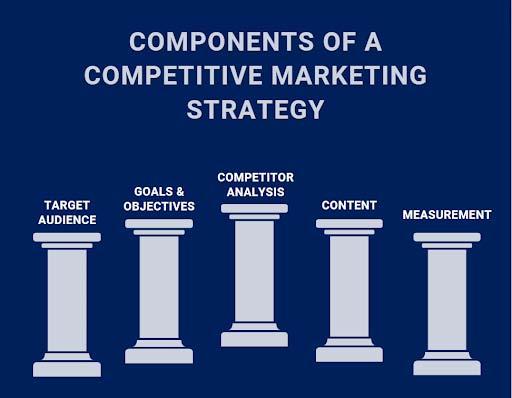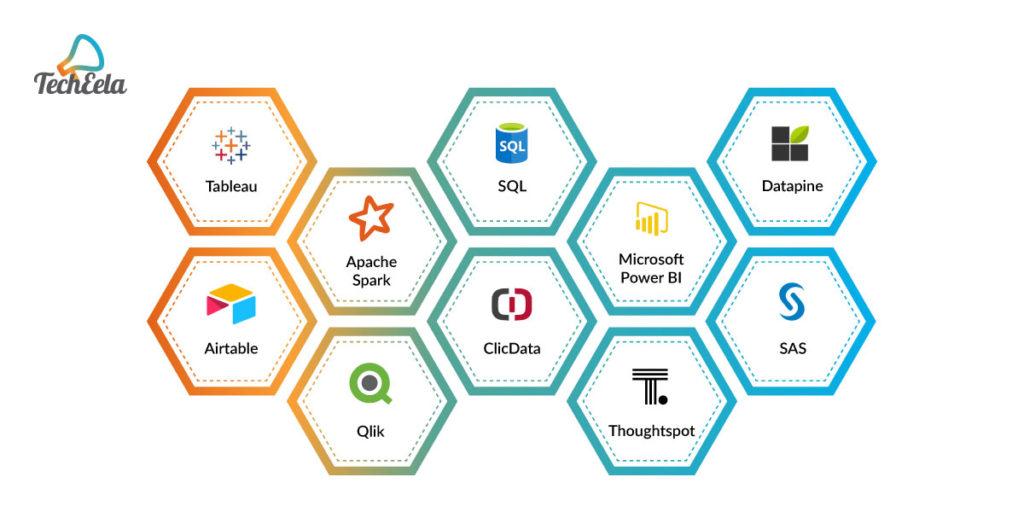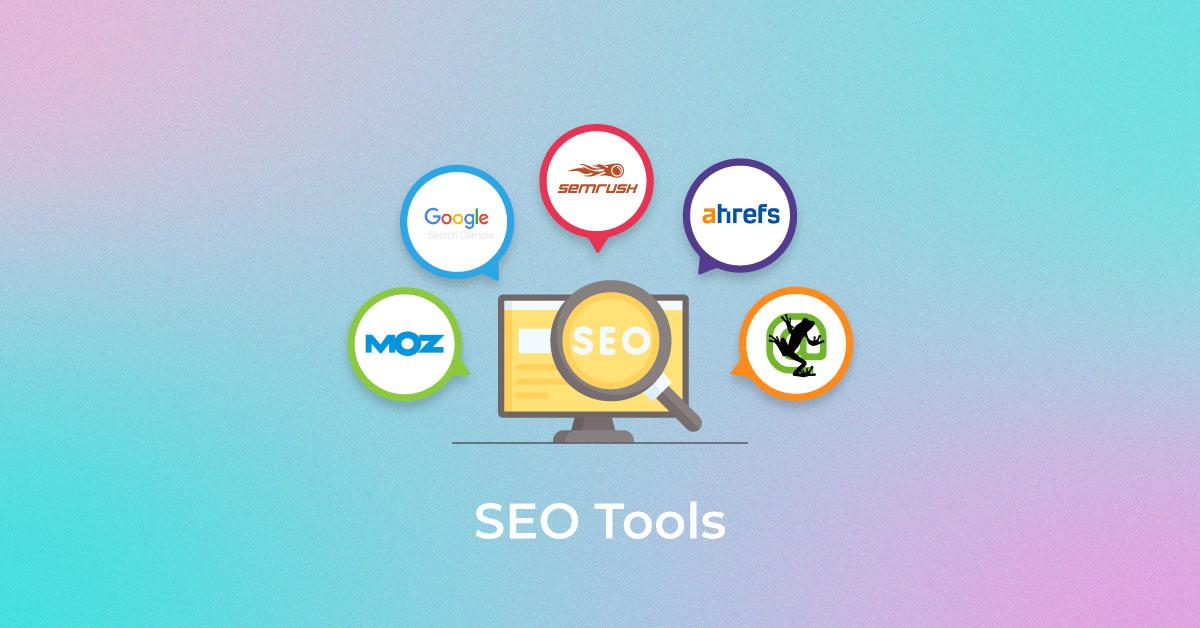Looking to elevate your online store’s visibility? Dive into our roundup of the 12 best eCommerce SEO tools! These game-changers will help you optimize your product listings, boost traffic, and ultimately drive more sales. Let’s get your store noticed!
12 Best Ecommerce SEO Tools to Boost Your Online Store Rankings
In today’s digital marketplace, simply having an online store isn’t enough—you need to stand out from the competition. With countless brands vying for attention, mastering the art of eCommerce SEO is crucial for driving traffic, increasing sales, and building a loyal customer base. But where do you start? That’s where the right tools come into play! In this article, we’ll explore the 12 best eCommerce SEO tools that can help elevate your online store’s rankings and visibility. Whether you’re a seasoned pro or just getting started, these tools will equip you with the insights and strategies needed to optimize your store effectively. Get ready to transform your eCommerce game and watch your sales soar!
Understanding the Importance of SEO for Your Ecommerce Success
In the crowded world of ecommerce, standing out is more crucial than ever. Search Engine Optimization (SEO) becomes a vital component of your online strategy, influencing not just visibility but also your overall revenue. A well-optimized online store can attract more targeted traffic, leading to increased sales and customer loyalty. It’s not just about getting visitors to your site; it’s about getting the right visitors. With the right SEO tools, you can fine-tune your strategy and stay ahead of the competition.
Imagine having the ability to analyze your website’s performance and make data-driven decisions that enhance user experience and drive conversions. This is where SEO tools come into play. They offer insights that are essential for understanding how your site is performing in search engines. By utilizing these tools, you can:
- Identify Keyword Opportunities: Find the right keywords that your target audience is searching for.
- Enhance Site Structure: Optimize navigation and improve user experience.
- Monitor Competitors: Analyze what works for your competition and adapt your strategy accordingly.
- Track Performance: Measure the success of your SEO efforts with detailed analytics.
Investing time and resources into the best SEO tools creates a solid foundation for your online store. Additionally, these tools can help you uncover technical issues that might be hindering your search rankings. For instance, issues like broken links, slow page load times, or poor mobile responsiveness can negatively impact your SEO efforts. Regular audits with these tools can keep your site in top shape and ensure that you are meeting the standards set by search engines.
Moreover, SEO isn’t a one-off task; it requires ongoing effort and adaptation. As algorithms change and consumer behavior shifts, having the right tools at your disposal makes it easier to stay agile. With real-time data and actionable insights, you can pivot your strategies quickly, ensuring that you remain competitive in your niche.
Ultimately, the success of your ecommerce business hinges on your visibility and ability to attract the right audience. By harnessing the power of SEO tools, you will not only enhance your online presence but also build a sustainable growth strategy that pays dividends over time. Every click counts, and with the right SEO approach, you can turn those clicks into loyal customers.
Key Features to Look for in Ecommerce SEO Tools
When diving into the world of ecommerce SEO tools, there are several key features that can significantly enhance your ability to improve your online store’s visibility. First and foremost, look for tools that offer comprehensive keyword research capabilities. Understanding what your customers are searching for is paramount. The right tool should help you uncover high-volume keywords that can drive targeted traffic to your site.
Another crucial feature is on-page optimization analysis. This allows you to evaluate how well your current product pages are optimized for search engines. A good tool will provide actionable insights, such as recommendations for meta titles, descriptions, and keyword placements. This ensures that every element on your page contributes to your overall SEO strategy.
Additionally, consider tools that include competitor analysis features. Understanding how your competitors rank and which keywords they target can inform your strategy and help you carve out your niche in a crowded market. Look for tools that allow you to monitor competitors’ backlinks, traffic sources, and even their content strategies.
Don’t overlook the importance of technical SEO audits. A robust tool should be able to identify and analyze technical issues that could hinder your site’s performance, such as slow loading times, broken links, and mobile usability problems. These factors play a significant role in both user experience and search engine rankings.
Lastly, opt for tools that provide analytics and reporting features. The ability to track your ranking changes, traffic growth, and conversion metrics will empower you to make data-driven decisions. Look for customizable dashboards that provide clear visual representations of your progress, enabling you to adjust your strategies on the fly.
| Feature | Description |
|---|---|
| Keyword Research | Uncover high-volume and relevant keywords. |
| On-Page Optimization | Get actionable insights for product pages. |
| Competitor Analysis | Monitor competitors’ SEO strategies. |
| Technical SEO Audit | Identify technical issues affecting performance. |
| Analytics & Reporting | Track progress and adjust strategies effectively. |
Top Tools for Keyword Research That Drive Traffic
When it comes to driving traffic to your online store, effective keyword research is the cornerstone of any successful SEO strategy. The right tools can help you uncover valuable keywords that resonate with your target audience, enhance your content strategy, and ultimately increase conversions.
Here are some top-notch resources to consider:
- Google Keyword Planner – A free tool that provides insights into keyword search volume, competition, and trends. It’s a great starting point for identifying potential keywords.
- Ahrefs – Known for its comprehensive keyword database, Ahrefs offers powerful tools for keyword exploration and analysis, helping you discover long-tail keywords that your competitors may overlook.
- SEMrush – This multifaceted platform not only aids in discovering keywords but also tracks their performance over time. You can analyze your competitors’ keywords to find gaps in your own strategy.
- Ubersuggest - A user-friendly option that provides keyword suggestions, search volume data, and seasonal trends, making it perfect for small business owners and beginners.
- KeywordTool.io – This tool generates keyword ideas based on Google Autocomplete, giving you insights into what real users are searching for in your niche.
To maximize the effectiveness of these tools, it’s crucial to analyze the data carefully. Focus on metrics such as search volume, keyword difficulty, and relevance to your products. This will help you prioritize which keywords to target first.
Here’s a quick comparison table of some popular tools to guide your decision:
| Tool | Cost | Best For |
|---|---|---|
| Google Keyword Planner | Free | Basic Keyword Research |
| Ahrefs | Paid | In-depth Analysis |
| SEMrush | Paid | Competitor Insights |
| Ubersuggest | Free/Paid | Small Business Owners |
| KeywordTool.io | Free/Paid | Long-Tail Keywords |
Don’t underestimate the power of local keywords as well. If your ecommerce store serves specific areas, tools like Moz can help you refine your local SEO efforts by providing localized keyword suggestions.
Utilizing these tools will not only help in identifying the right keywords but also enhance your content strategy. Consistently updating your website with high-quality, keyword-optimized content will keep your audience engaged and improve your search rankings over time.
Enhancing Your Product Pages with On-Page SEO Solutions
When it comes to optimizing your product pages for search engines, on-page SEO is your best friend. It’s all about enhancing individual pages to improve their visibility and ranking in search results. Here’s how you can leverage some effective strategies to elevate your ecommerce product pages.
Start by focusing on keyword optimization. Identify the primary keywords that best describe your products, and sprinkle them naturally throughout your page. This includes the product title, descriptions, and even image alt texts. You want to ensure that search engines clearly understand what each page is about, so users can find exactly what they’re looking for.
Another important element is high-quality product descriptions. Instead of copying manufacturer details, craft unique, engaging content that speaks to your audience. Highlight key features, benefits, and potential use cases. Use formatting elements like bullet points to make the text scannable and easy to digest. Here’s a quick example:
- Feature 1: Descriptive and engaging text.
- Feature 2: Highlight customer benefits.
- Feature 3: Include a call-to-action.
Don’t underestimate the power of user-generated content. Encourage your customers to leave reviews and ratings. This not only builds trust but also adds fresh, relevant content to your pages which search engines love. Plus, authentic reviews can significantly influence purchasing decisions, making them a powerful conversion tool.
Next up is image optimization. Ensure that all product images are high-quality and properly compressed for faster loading times. Use descriptive alt tags that include relevant keywords to improve your chances of appearing in image searches. A well-optimized image can drive additional traffic to your product pages.
consider employing schema markup. This helps search engines understand your product details better and can enhance your listings with rich snippets. This means when potential customers see your products in search results, they’ll get more information at a glance, which can lead to higher click-through rates.

Uncovering the Best SEO Tools for Technical Optimization
How to Choose the Right SEO Tools
When diving into the world of technical optimization for your eCommerce store, choosing the right SEO tools can make a significant difference. The right tools help you identify issues, optimize your site structure, and enhance your overall online presence. Here are some vital aspects to consider when selecting your SEO arsenal:
- User-Friendly Interface: Opt for tools that are intuitive and easy to navigate. This will save you time and reduce frustration, especially when you’re managing multiple aspects of your online store.
- Comprehensive Reporting: Look for tools that provide in-depth analytics and reports. These insights are crucial for understanding your site’s performance and making data-driven decisions.
- Technical Audit Features: Ensure the tool includes features that can conduct thorough site audits, checking for broken links, missing tags, and other technical SEO aspects.
Essential Features for eCommerce SEO Tools
Not all SEO tools are created equal, especially when it comes to eCommerce. Here are some essential features to look for:
- Keyword Research: A robust keyword research tool helps you identify the best keywords to target, ensuring that your products reach the right audience.
- Competitor Analysis: Understanding what your competitors are doing can provide insights on how to improve your own strategies. Look for tools that offer competitor tracking and analysis.
- Backlink Tracking: Building quality backlinks is crucial for SEO. Choose tools that help you monitor your link-building efforts and track your backlink profiles.
Top Tools You Shouldn’t Miss
| Tool | Key Feature | Best For |
|---|---|---|
| Ahrefs | Comprehensive backlink analysis | Link building strategies |
| SEMrush | Keyword tracking and competitor analysis | All-in-one SEO management |
| Google Search Console | Performance tracking | Free tool for website health |
| Yoast SEO | On-page optimization | WordPress users |
By leveraging these essential tools, your eCommerce site will not only improve its rankings but also enhance user experience and increase conversion rates. The right combination of features tailored for your specific business needs can unlock your online store’s potential. Remember, the goal is to stay ahead of the competition and provide your customers with the best possible shopping experience.

Boost Your Link Building Strategy with These Essential Tools
When it comes to enhancing your link building efforts, having the right tools at your disposal can make all the difference. These tools not only streamline your process but also make it easier to identify high-quality opportunities that can significantly improve your online store’s visibility.
1. Ahrefs: This robust SEO tool is essential for link building. With its powerful backlink analysis feature, you can find out where your competitors are getting their links from. Use this data to target similar sites and develop a tailored outreach strategy.
2. Moz Link Explorer: Moz provides a comprehensive view of your link profile, helping you identify link-building opportunities. Plus, its metrics like Domain Authority can help you gauge the quality of potential backlinks.
3. BuzzSumo: Ideal for content marketing and link building, BuzzSumo helps you discover the most shared content in your niche. By analyzing what works, you can create your own valuable content and engage in outreach to earn links.
4. SEMrush: This all-in-one marketing tool offers a detailed analysis of your backlinks, competitor link profiles, and potential link-building opportunities. With SEMrush, you can track the effectiveness of your strategies over time.
| Tool | Key Feature | Best For |
|---|---|---|
| Ahrefs | Backlink Analysis | Competitor Research |
| Moz Link Explorer | Domain Authority Metrics | Quality Assessment |
| BuzzSumo | Content Discovery | Content Marketing |
| SEMrush | Link Tracking | Comprehensive SEO |
5. LinkMiner: A great tool for finding broken links, LinkMiner allows you to discover link-building opportunities through sites that may have lost links. Reach out to these sites with your own content to fill the gap.
6. Hunter.io: Finding the right contact can sometimes be the hardest part of link building. Hunter.io helps you find email addresses associated with specific domains, making outreach a breeze.
7. Pitchbox: This outreach tool automates much of the process, allowing you to manage your campaigns efficiently while ensuring that every pitch is personalized and targeted.
Incorporating these tools into your link-building strategy can lead to meaningful improvements in your online store’s SEO performance. With the right approach, you’ll not only gain high-quality backlinks but also establish valuable relationships within your industry.

Analyzing Competitor Strategies Using the Right SEO Tools
Understanding your competitors’ strategies is crucial to gaining a competitive edge in the crowded ecommerce landscape. By utilizing the right SEO tools, you can dissect their tactics and leverage insights to enhance your own online store’s performance. Here are some powerful methods to analyze your competitors effectively:
- Keyword Research: Start by identifying the keywords your competitors are ranking for. Tools like SEMrush and Ahrefs allow you to enter a competitor’s domain and view their top-performing keywords, giving you an idea of what drives traffic to their site.
- Backlink Analysis: Backlinks are a major ranking factor. Using tools like Moz or Majestic, you can analyze your competitors’ backlink profiles. Look for high-authority sites linking to them and consider how you can earn similar links.
- Content Strategy: Analyze the type of content your competitors are producing. Are they focusing on blog posts, videos, or infographics? Tools like BuzzSumo can help you track which pieces of content are performing well in terms of shares and engagement.
Integrating these insights into your own strategy can be transformative. For instance, if you discover that your competitors are successfully ranking for long-tail keywords, you might want to create content that targets those specific phrases. This not only helps you rank better but also drives highly relevant traffic to your site.
Another critical aspect is examining their on-page SEO tactics. By using tools like Screaming Frog, you can conduct a comprehensive audit of their website structure, meta tags, and overall user experience. Analyzing these elements can reveal opportunities for optimizing your own site. Consider the following:
| SEO Element | Competitor Metrics | Your Metrics |
|---|---|---|
| Title Tags | Catchy & keyword-rich | Optimize for relevance |
| Meta Descriptions | Compelling CTAs | Test various CTAs |
| URL Structure | Clean & descriptive | Revise for clarity |
Lastly, keep an eye on their social media engagement. Tools like Hootsuite or Sprout Social can help you monitor how competitors interact with their audience. The engagement levels can indicate which strategies resonate well and provide insight into your own social media tactics. By understanding what works for competitors, you can adapt your approach to build a stronger online community and drive more traffic to your ecommerce store.

Measuring Success: The Best Analytics Tools for Ecommerce SEO
To truly thrive in the competitive world of ecommerce, understanding and harnessing the power of analytics is crucial. Not only do these tools help you track performance, but they also provide insights that can drive significant improvements to your SEO strategy. With the right analytics tools, you can pinpoint what’s working, what’s not, and where your opportunities lie.
Google Analytics is the gold standard, offering a comprehensive suite of metrics to gauge your website’s performance. You can monitor traffic sources, user behavior, and conversion rates, all of which are vital for crafting an effective SEO strategy. Setting up goals and tracking eCommerce transactions helps you understand which keywords are driving sales and which pages need optimization.
Another powerful option is SEMrush. Beyond basic analytics, it allows you to conduct in-depth keyword research and competitor analysis. You can track your rankings over time and analyze the SEO health of your site, enabling you to make data-driven decisions that enhance your visibility. Plus, its reporting features make it easy to communicate your progress with stakeholders.
Don’t overlook Ahrefs, particularly for its backlink analysis capabilities. With Ahrefs, you can monitor your website’s link profile, assess the quality of incoming links, and identify opportunities for building new ones. The tool also provides detailed insights into your competitors’ strategies, giving you a competitive edge in the crowded ecommerce landscape.
For those who favor a more user-friendly interface, Moz is a fantastic choice. Moz offers a variety of SEO tools that are easy to navigate and understand. The Moz Pro suite includes features like site audits, rank tracking, and keyword research, all presented in an intuitive dashboard that caters to both beginners and seasoned pros alike.
| Analytics Tool | Key Features | Best For |
|---|---|---|
| Google Analytics | Traffic analysis, conversion tracking | Comprehensive performance tracking |
| SEMrush | Keyword research, competitor analysis | In-depth SEO strategy |
| Ahrefs | Backlink analysis, site audits | Link-building strategies |
| Moz | Site audits, keyword tracking | User-friendly SEO management |
Integrating these analytics tools into your ecommerce strategy not only helps you track your success but also empowers you to optimize your site continually. Remember, SEO is not a one-time effort; it’s an ongoing process that requires regular analysis and adjustments. By leveraging these powerful tools, you can ensure that your online store stays ahead of the competition and continues to grow.

Integrating SEO Tools with Your Ecommerce Platform
is a game-changer when it comes to enhancing your online visibility. By leveraging the right tools, you not only optimize your product listings but also improve user experience and drive organic traffic to your store. Here’s how you can seamlessly integrate these powerful tools into your ecommerce strategy.
First, consider incorporating tools that enable you to perform keyword research directly from your ecommerce dashboard. Many platforms support plugins or integrations for industry-leading tools like Ahrefs or SEMrush. This allows you to track trending keywords and optimize your product descriptions, titles, and meta tags in real-time, ensuring that your store remains aligned with what customers are searching for.
Next, utilize site audit tools that provide insights into your website’s health. Tools like Screaming Frog or Moz can help identify broken links, duplicate content, and other SEO issues that could hinder your rankings. Integrating these tools allows for regular checks and balances, ensuring your ecommerce site remains optimized and user-friendly.
Furthermore, implementing a reliable analytics tool is crucial. Google Analytics and Google Search Console are indispensable for tracking performance metrics and understanding how users interact with your site. By integrating these tools, you can gather data on traffic sources, user behavior, and conversion rates, making it easier to refine your SEO strategy and make data-driven decisions.
Another essential integration is with social media tools. Platforms like Buffer or Hootsuite can help you manage your social media marketing efforts effectively. By sharing your product pages and blog content on social media, you can increase visibility and drive traffic back to your online store, boosting both SEO and sales.
Lastly, do not overlook the importance of content marketing tools. Integrating platforms like BuzzSumo or CoSchedule enables you to create and schedule relevant content that attracts and engages your target audience. Well-optimized blog posts linked to your products can significantly improve your site’s SEO, enhancing your chances of ranking higher in search results.
| Tool Type | Recommended Tools | Key Benefit |
|---|---|---|
| Keyword Research | Ahrefs, SEMrush | Optimize product listings |
| Site Audit | Screaming Frog, Moz | Identify SEO issues |
| Analytics | Google Analytics, Search Console | Track performance metrics |
| Social Media | Buffer, Hootsuite | Increase visibility |
| Content Marketing | BuzzSumo, CoSchedule | Engage target audience |

Final Thoughts on Choosing the Right SEO Tools for Your Store
Choosing the right SEO tools for your online store can feel overwhelming, especially with so many options available. However, understanding your specific needs and the unique aspects of your eCommerce business can make this task much easier. It’s essential to prioritize tools that not only enhance your site’s visibility but also provide insights that help you make informed decisions.
When looking for SEO tools, consider the following factors:
- User-friendliness: The tool should be easy to navigate, allowing you to focus on your strategies rather than wasting time learning how to use it.
- Comprehensive features: Look for tools that offer keyword research, site audits, backlink analysis, and competitor insights all in one platform.
- Customer support: Reliable customer support can be invaluable, especially when you encounter issues or need guidance on maximizing the tool’s potential.
- Integration capabilities: Ensure the tool integrates smoothly with your existing eCommerce platforms and other marketing tools you use.
Another critical aspect is understanding your budget. While some tools offer free versions, others come with premium features that can significantly enhance your SEO efforts. It’s wise to start with tools that fit your current needs and budget, then scale up as your store grows. Remember, investing in the right tools is an investment in your store’s future success.
To help you make an informed decision, here’s a simple comparison table highlighting key features of the top eCommerce SEO tools:
| Tool | Key Features | Pricing |
|---|---|---|
| SEMrush | Keyword Research, Site Audit, Competitor Analysis | Starting at $119.95/month |
| Ahrefs | Backlink Analysis, Keyword Explorer, Site Audit | Starting at $99/month |
| Moz Pro | Keyword Research, On-page Optimization, Link Building | Starting at $99/month |
| Shopify SEO Toolkit | SEO Performance Tracking, Optimization Recommendations | Free with Shopify Plans |
Ultimately, the right SEO tools will not only improve your store’s rankings but also give you a competitive edge in the ever-evolving eCommerce landscape. Take your time to explore different options, read reviews, and even take advantage of free trials to ensure the tools align with your business goals. With the right approach and resources, you’ll set your online store up for success.
Frequently Asked Questions (FAQ)
12 Best Ecommerce SEO Tools to Boost Your Online Store Rankings
Q&A
Q1: Why is SEO important for my ecommerce store?
A: Great question! SEO, or Search Engine Optimization, is crucial for your ecommerce store because it helps your website appear higher in search engine results. The higher your site ranks, the more visibility you gain, which can lead to increased traffic and, ultimately, more sales. Think of it as putting up a huge billboard on a busy highway—everyone will see your store!
Q2: What features should I look for in an ecommerce SEO tool?
A: When choosing an SEO tool, look for features that focus on keyword research, site audit capabilities, backlink analysis, and performance tracking. These features help you identify what your customers are searching for, optimize your site’s health, and keep an eye on your competition. Remember, you want a tool that not only helps you find keywords but also gives you actionable insights!
Q3: Can you give me a rundown of some top ecommerce SEO tools?
A: Absolutely! Here’s a sneak peek at some of the best tools that can supercharge your ecommerce SEO strategy:
- Ahrefs – Perfect for comprehensive keyword research and backlink analysis.
- SEMrush - Known for its competitive analysis tools and on-page SEO recommendations.
- Moz – Great for tracking keyword rankings and offers helpful SEO insights.
- Yoast SEO – A must-have for WordPress users, providing real-time content analysis.
- Google Search Console – Essential for monitoring your site’s performance in Google search results.
- Screaming Frog – An excellent site audit tool that uncovers technical SEO issues.
- Ubersuggest - A user-friendly tool for keyword suggestions and content ideas.
- Shopify SEO – Specifically designed for Shopify stores to optimize product pages.
- Google Analytics – Helps you track traffic and user behavior, providing insights into your SEO efforts.
- Keyword Planner – Google’s own tool for finding relevant keywords and search volumes.
- Majestic SEO – Strong in backlink analysis, helping improve your site’s authority.
- SEO Site Checkup – Offers quick site audits to identify areas for improvement.
Each of these tools brings something unique to the table!
Q4: How do I know which tool is right for my ecommerce store?
A: Consider your specific needs! If you’re just starting, a more user-friendly tool like Ubersuggest or Shopify SEO might be ideal. If you’re looking for in-depth analysis and you’re a bit more tech-savvy, tools like Ahrefs or SEMrush could be a perfect fit. It’s all about finding the tool that aligns with your goals and expertise.
Q5: How can these tools help me increase sales?
A: By optimizing your site to rank higher, you’ll attract more organic traffic, which means more potential customers browsing your products! The right tools will help you find the best keywords to target, optimize your product descriptions, and improve your overall user experience. This can lead to higher conversion rates and more sales—essentially, a more profitable business!
Q6: Is SEO a one-time effort, or do I need to keep working on it?
A: SEO is definitely an ongoing process. Search engine algorithms change, your competitors evolve, and you’ll want to keep your content fresh and optimized. Think of it like gardening—you plant the seeds, but you need to keep watering and tending to them to see the blooms!
Q7: How long will it take to see results from using these SEO tools?
A: Results can vary, but generally, you might start seeing improvements in 3 to 6 months. It takes time for search engines to recognize changes and for your rankings to improve. Patience is key! Stay consistent with your efforts, and you’ll reap the rewards.
Q8: Can I do SEO myself, or should I hire an expert?
A: It really depends on your comfort level and the time you have to dedicate to it. Many small business owners successfully manage their own SEO using the right tools. However, if you’re feeling overwhelmed or lack the expertise, hiring an SEO expert can be a worthwhile investment. They can provide tailored strategies and save you valuable time.
Q9: What’s the first step I should take after choosing an SEO tool?
A: Start with a site audit! This will give you a clear picture of your current SEO status, highlighting issues that need addressing. From there, you can prioritize your strategies based on the insights you gather. It’s all about setting a solid foundation before diving deeper into optimization!
Q10: Any last tips for boosting my ecommerce SEO?
A: Absolutely! Focus on creating high-quality content that adds value to your customers, optimize your product pages with relevant keywords, and pay attention to user experience. Engaging content and a smooth shopping journey can keep customers coming back. Remember, SEO isn’t just about rankings; it’s about providing a great experience that converts visitors into loyal buyers!
With the right tools and strategies, boosting your ecommerce store rankings is within reach. So, gear up and get ready to take your online store to new heights! Happy optimizing!
Concluding Remarks
As we wrap up our journey through the 12 best eCommerce SEO tools, it’s clear that the right toolkit can make all the difference in boosting your online store’s visibility and driving traffic. Whether you’re a seasoned pro or just starting out, leveraging these tools can be a game-changer in navigating the competitive landscape of online retail.
Remember, SEO isn’t a one-and-done task; it’s an ongoing process that requires attention and adaptability. By integrating these tools into your strategy, you’re not just optimizing for search engines but also enhancing the overall shopping experience for your customers. After all, happy customers lead to higher conversions!
So, don’t wait any longer! Dive in, explore these tools, and see how they can transform your eCommerce business. With the right approach, your store can rise to the top of search results, attracting more visitors and ultimately driving sales. Let’s get started on your path to eCommerce success—your online store deserves it!






